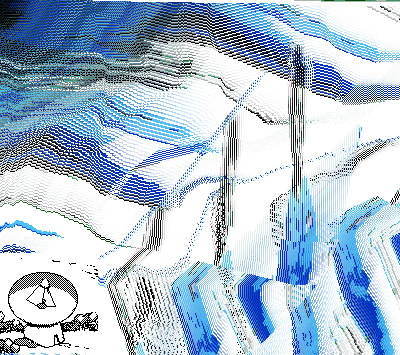Adam Rifkin (techcrunch) tells us some things we already know about Tumblr:
ONE
Tumblr actually became huge because it is the anti-blog. What is the No. 1 reason that people quit blogging? Because they can’t find and develop an audience. This has been true of every blogging platform ever made. Conversely, blogs that do find an audience tend to keep adding that type of content. This simple philosophy boils down to the equation: Mo’ pageviews = mo’ pages.
But Tumblr does not conform to this calculus, and the reason is that a large percentage of Tumblr users actually don’t WANT an audience. They do not want to be found, except by a few close friends who they explicitly share one of their tumblogs with. Therefore Tumblr’s notoriously weak search functionality is A-OK with most of its user base.
TWO
For [entertaining memes and porn] the fact that Tumblr offers full animated gif support is crucial as a differentiator from the static environs of Facebook, Twitter, Instagram and even Pinterest. Ten seconds of reaction shot — or sex act — make a big difference in expressive power. Also, gifs are far easier to view on mobile devices than video, and so far the big content owners have made little effort to stamp them out via DMCA. [assuming the mobile device supports GIFs --tm]
THREE
Tumblr is not replacing Facebook; it’s merely siphoning off some authentic liking and sharing, especially among young Americans. Facebook needs to exist because it’s holding down the Mom, siblings, and lame friends part of a person’s social life — the “public-private” life, if you will. As long as Mom sees you on Facebook occasionally, she isn’t going to think to look for you on another site… which paradoxically frees young users to act out on a stage that seems more private to them despite being on the open web.
"Mom, siblings, and lame friends" -- not Glitch artists, not social media artists. Please note.
Rifkin does conclude -- ominously -- that the still-not-monetizable Tumblr is working on its own "Graph," so enjoy your obscurity while you can.
And let's also note the glaring contradiction in Rifkin's statement that "people quit blogging because they can’t find and develop an audience" and Tumblr's growth occurring because "a large percentage of Tumblr users actually don’t WANT an audience."

